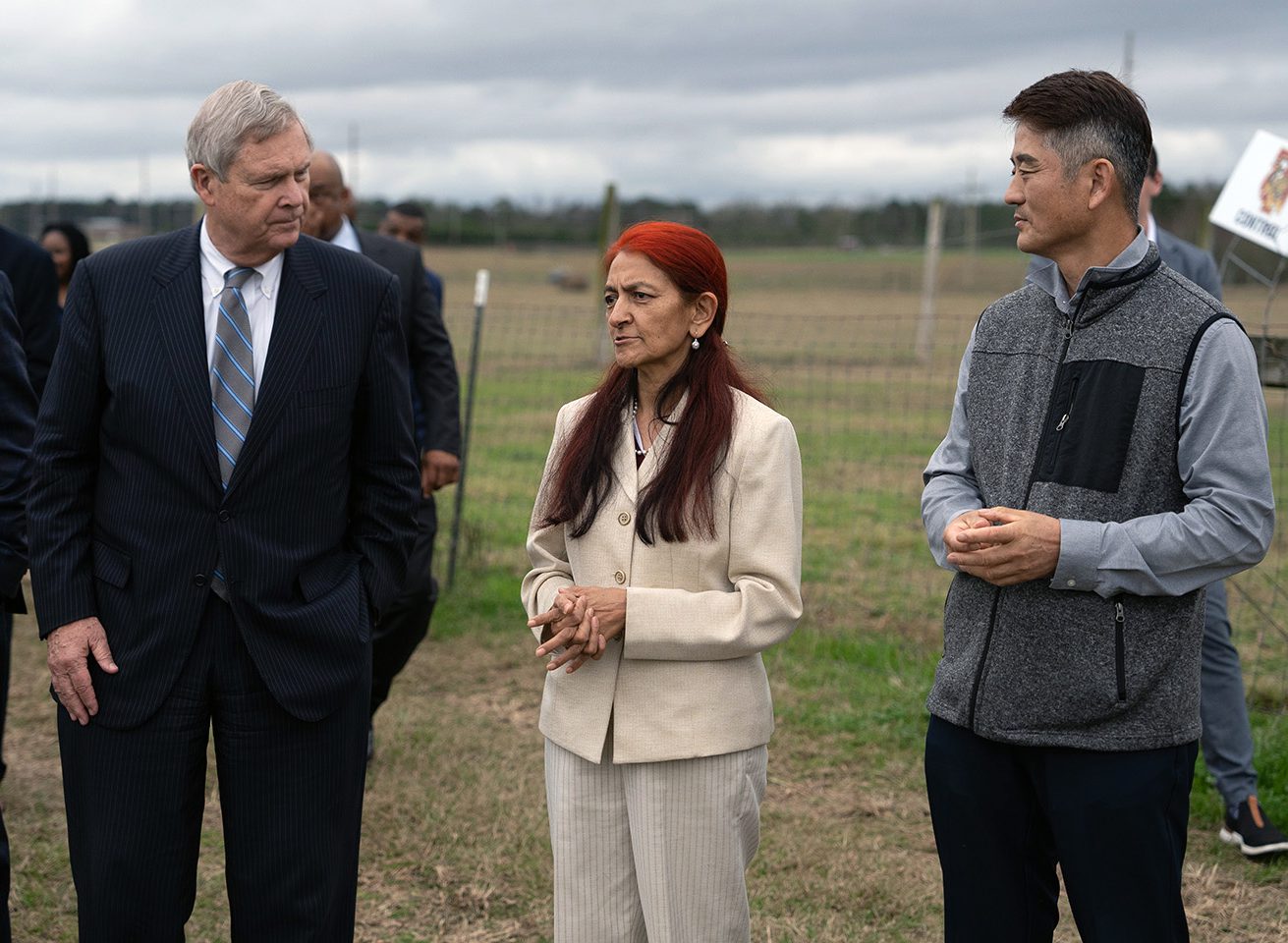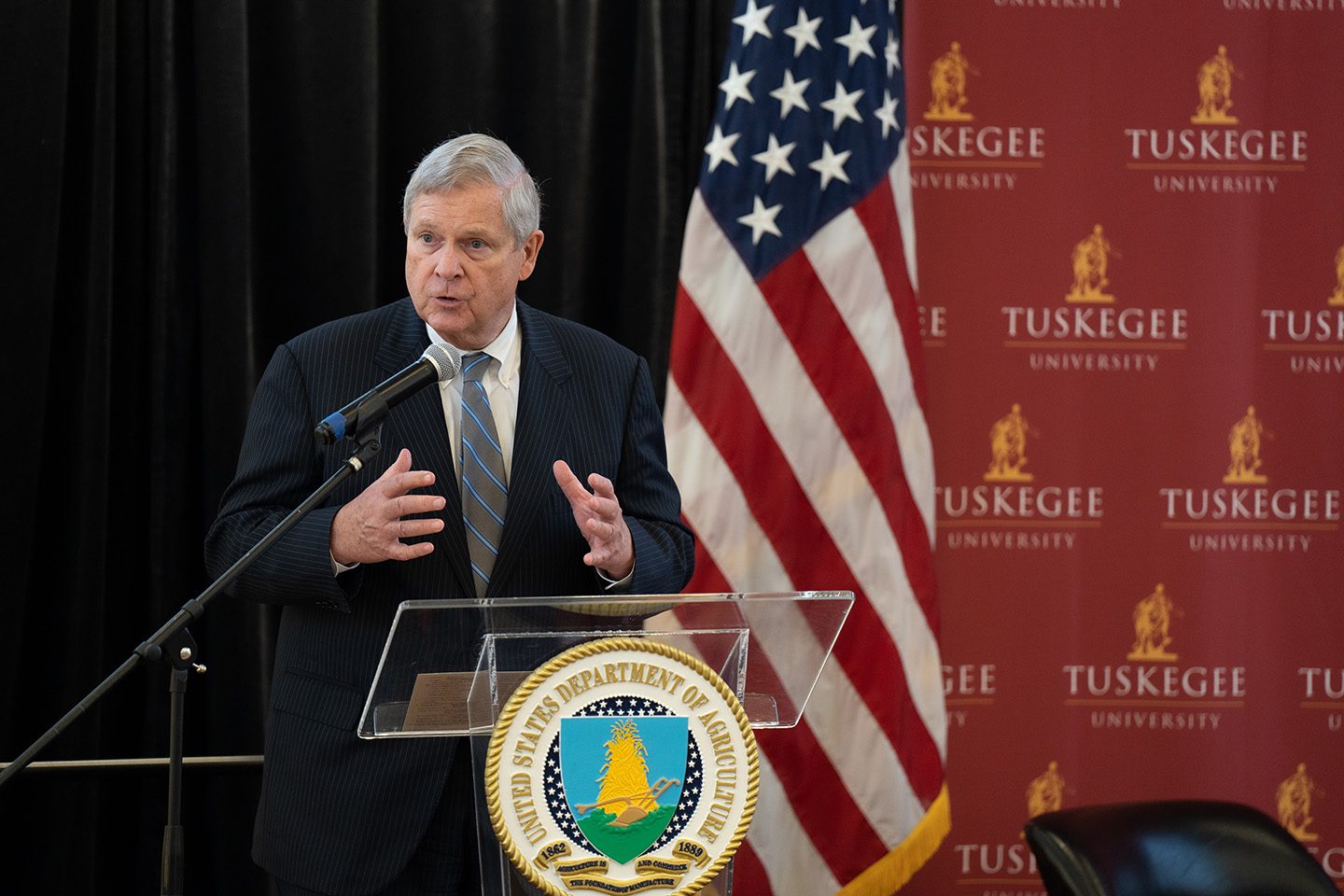U.S. government efforts to reduce the country’s greenhouse gas emissions are honing in on incorporating renewable energy, increasing the number of lower emission vehicles on the road, and encouraging more sustainable practices from the agriculture industry. As part of this work, a new program – Partnerships for Climate-Smart Commodities – focused specifically on helping farmers lower their emissions, was awarded $3 billion.
The Partnerships for Climate-Smart Commodities program is administered by the U.S. Department of Agriculture (USDA) and has the potential to make a big impact. In December, USDA invested $325 million across 71 projects under a new round of funding for the initiative, bringing the total investment to $3.1 billion for 141 selected projects.
The program is part of a broader national goal to reduce emissions while also helping U.S. farmers meet the rising demand for sustainably produced food.
The 71 projects funded in the latest round range from $250,000 to nearly $5 million. The money will be used to help small farmers adopt lower-emission farming practices, with a special focus on innovative projects that involve Black farmer associations, Native American tribes, and organizations that serve women, veterans, and beginning farmers.

Some projects will center on eco-friendly farm practices such as rotating crops, installing solar panels in farm fields, and reducing the amount of fertilizer use. Others will provide technical assistance that will allow farmers to learn new skills.
“We want to encourage farmers and producers to accelerate use of these practices, and we want the market to recognize and value (that) work,” said Agriculture Secretary Tom Vilsack.
Among the goals of Partnerships for Climate-Smart Commodities are to expand the markets for farmers and others who produce climate-smart commodities and leverage the greenhouse gas benefits of climate-smart production.
“Expanding opportunities for small and underserved producers is a key goal of Partnerships for Climate-Smart Commodities,” Vilsack said in a press release. “Small and underserved producers are facing the impacts of climate change head-on, with limited resources, and have the most to gain from leveraging the growing market demand for agricultural goods produced in a sustainable, climate-smart way. Our goal is to expand markets for climate-smart commodities and ensure that small and underserved producers reap the benefits of these market opportunities.”

Photo Courtesy tuskegee.edu
The USDA has received over 1,000 proposals requesting over $20 billion in funds between its two rounds of funding. Requests came from over 700 entities, including nonprofit organizations, government entities, farmer cooperatives, environmental groups, tribal governments, universities, small businesses, and large corporations. Applications were received from all 50 states, Washington, D.C., Puerto Rico, and tribal lands.
The December funding round followed one in September that provided $2.8 billion for 70 tentatively selected projects. The first round received more than $18 billion in requests for individual projects that ranged between $5 million and $100 million.
As of mid-December, the USDA was in negotiations regarding the first 70 projects, with plans to spend the next few months working with applicants for all 141 identified projects to finalize the scope and funding levels. The USDA’s Commodity Credit Corporation will provide funding.
Secretary Vilsack announced funding from Tuskegee University in Alabama, a Historically Black College and University , and 1890 Land-grant University. Tuskegee is the lead partner on two Partnerships for Climate-Smart Commodity projects. One focuses on developing climate-smart markets for agroforestry products. The other aims to help underserved farmers and ranchers implement climate-resilient forage systems and market climate-smart sheep and goat products.

Photo Courtesy TUSKEGEE UNIVERSITY
Among the long-term targets set by Partnerships for Climate-Smart Commodities are to help expand hundreds of markets and revenue streams for farmers and ranchers, ranging from traditional corn to specialty crops. The partnership also aims to reach more than 60,000 farms encompassing over 25 million acres, with a target of reducing more than 60 million metric tons of carbon dioxide equivalent sequestered over the lives of the projects.





